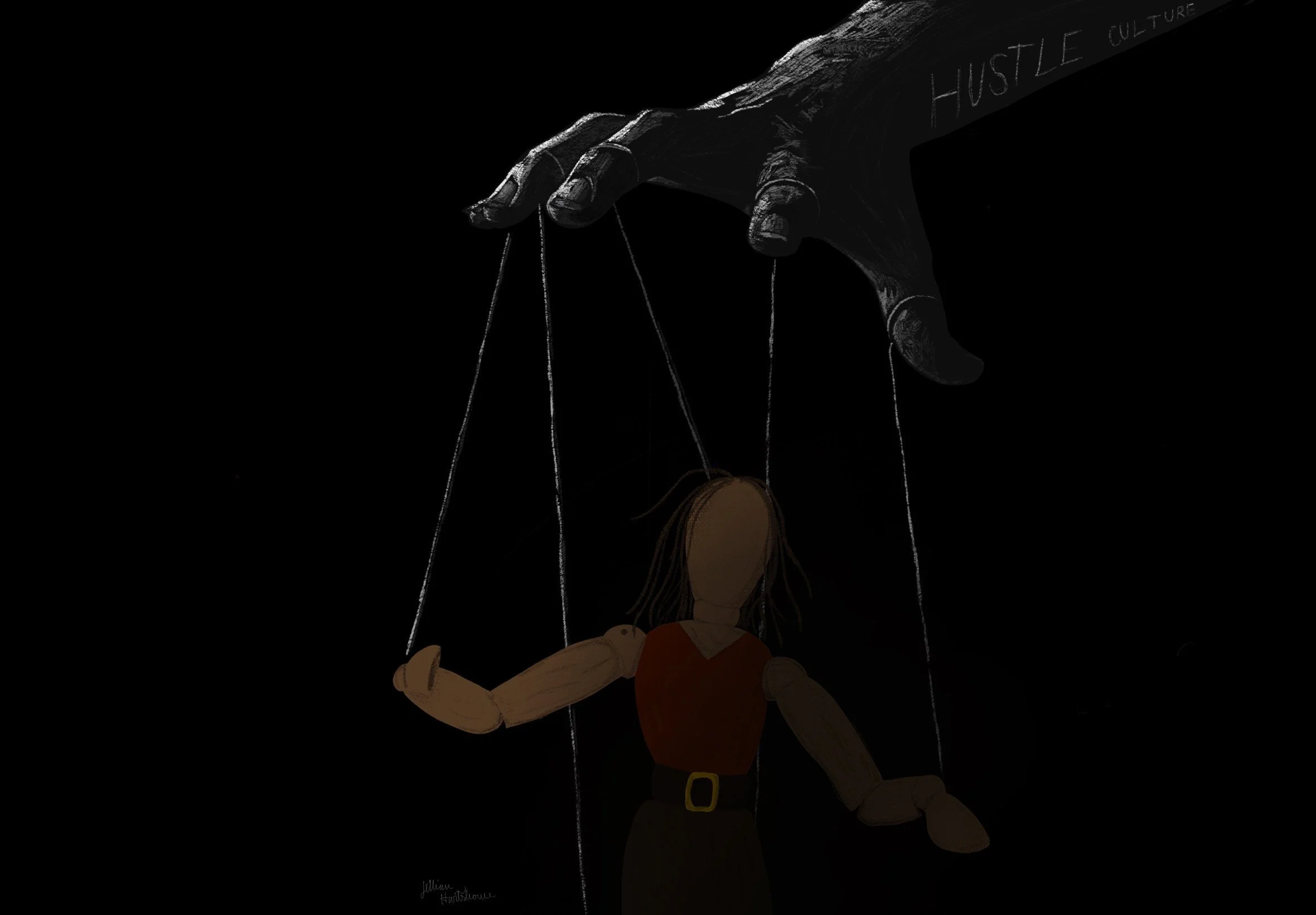Lost in the Hustle
Article by Samia Posada | Artwork by Jillian Hartshorne
There is a fine line between passion and pressure. Society promotes the idea that success is earned through relentless effort, encouraging individuals to take on more, sleep less, and constantly prove their worth. Hustle culture reinforces the belief that slowing down is equivalent to falling behind. However, when ambition becomes an obligation rather than a source of fulfillment, an important question is presented: At what point does hard work stop being a path to success and start becoming a burden?
Modern culture glorifies overworking. Social media is filled with posts about packed schedules, early morning routines, and the constant pursuit of productivity. However, these idealistic portrayals often fail to truly reveal the exhaustion that comes with such a lifestyle. A 2023 survey by Cigna International Health found that 91% of young adults experience high levels of stress, largely driven by academic and professional pressures (BBC Worklife). The constant expectation to achieve more can overshadow personal well-being, turning success into an obligation rather than a source of motivation.
For children of immigrants, this pressure is often even more intense. Many grow up hearing stories of sacrifice, where parents left behind a life of familiarity and stability in search of better opportunities. In these households, success is often measured by financial security and traditional career paths, reinforcing the idea that practicality must take priority over passion. According to the Migration Policy Institute, immigrant families tend to emphasize education and high-paying fields as essential to long-term stability (Migration Policy Institute). While this perspective is rooted in a desire to provide security, it can unintentionally push individuals away from personal fulfillment and toward careers chosen out of obligation rather than interest.
When external expectations dictate one’s path, passion often fades. The artist who once created for enjoyment may begin to view their work as a means to an end, and the student who once loved learning might select classes based on what will look best on a college application rather than genuine curiosity. Research published in AIP Conference Proceedings explains that while ambition can be an effective motivator, chronic overworking frequently leads to stress, exhaustion, and a decline in overall well-being (AIP Conference Proceedings). In the pursuit of success, many lose sight of why they started in the first place.
Hard work remains essential, but balance is equally important. Success should not come at the expense of personal well-being, nor should ambition be defined solely by external expectations. Taking the time to reflect, rest, and reassess is not an act of failure but rather a means of sustaining long-term motivation and joy. The world will always demand more, whether it’s more effort, more achievements, or more results. However, true fulfillment is not found in endless productivity but in ensuring that ambition doesn’t lead to becoming lost in the hustle.
Works Cited
